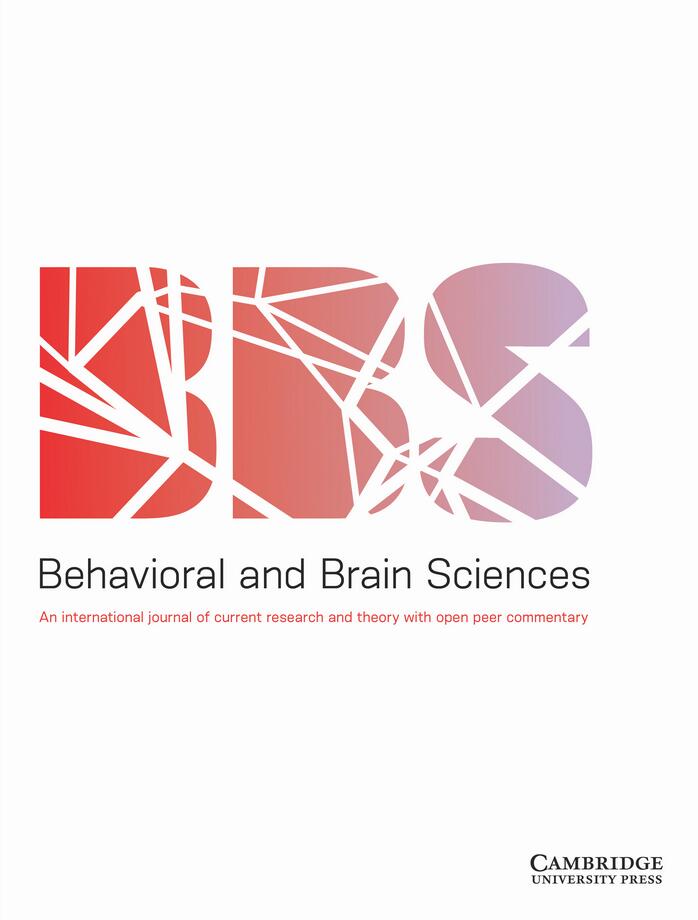为什么有些联盟比其他联盟更能从历史神话中获益?
IF 13.7
1区 心理学
Q1 BEHAVIORAL SCIENCES
引用次数: 0
摘要
行为生态学本身可以在个体之间的相互依赖中产生适应性变化,从而调节调用历史神话的功能。我们开发这种可能性的情况下,联盟形成攻击和利用敌人,或捍卫和保护敌对的外部群体。我们认为,引用历史神话是功能性的,特别是当群体积极扩张时。本文章由计算机程序翻译,如有差异,请以英文原文为准。
Why some coalitions benefit from historical myths more than others.
Behavioural ecologies in themselves can create variation in fitness interdependencies among individuals, and hence modulate the functionality of invoking historical myths. We develop this possibility for the case where coalitions form to attack and exploit enemies, or to defend and protect against hostile out-groups. We propose that invoking historical myths are functional and observed especially when groups aggressively expand.
求助全文
通过发布文献求助,成功后即可免费获取论文全文。
去求助
来源期刊

Behavioral and Brain Sciences
医学-行为科学
CiteScore
1.40
自引率
1.70%
发文量
353
期刊介绍:
Behavioral and Brain Sciences (BBS) is a highly respected journal that employs an innovative approach called Open Peer Commentary. This format allows for the publication of noteworthy and contentious research from various fields including psychology, neuroscience, behavioral biology, and cognitive science. Each article is accompanied by 20-40 commentaries from experts across these disciplines, as well as a response from the author themselves. This unique setup creates a captivating forum for the exchange of ideas, critical analysis, and the integration of research within the behavioral and brain sciences, spanning topics from molecular neurobiology and artificial intelligence to the philosophy of the mind.
 求助内容:
求助内容: 应助结果提醒方式:
应助结果提醒方式:


